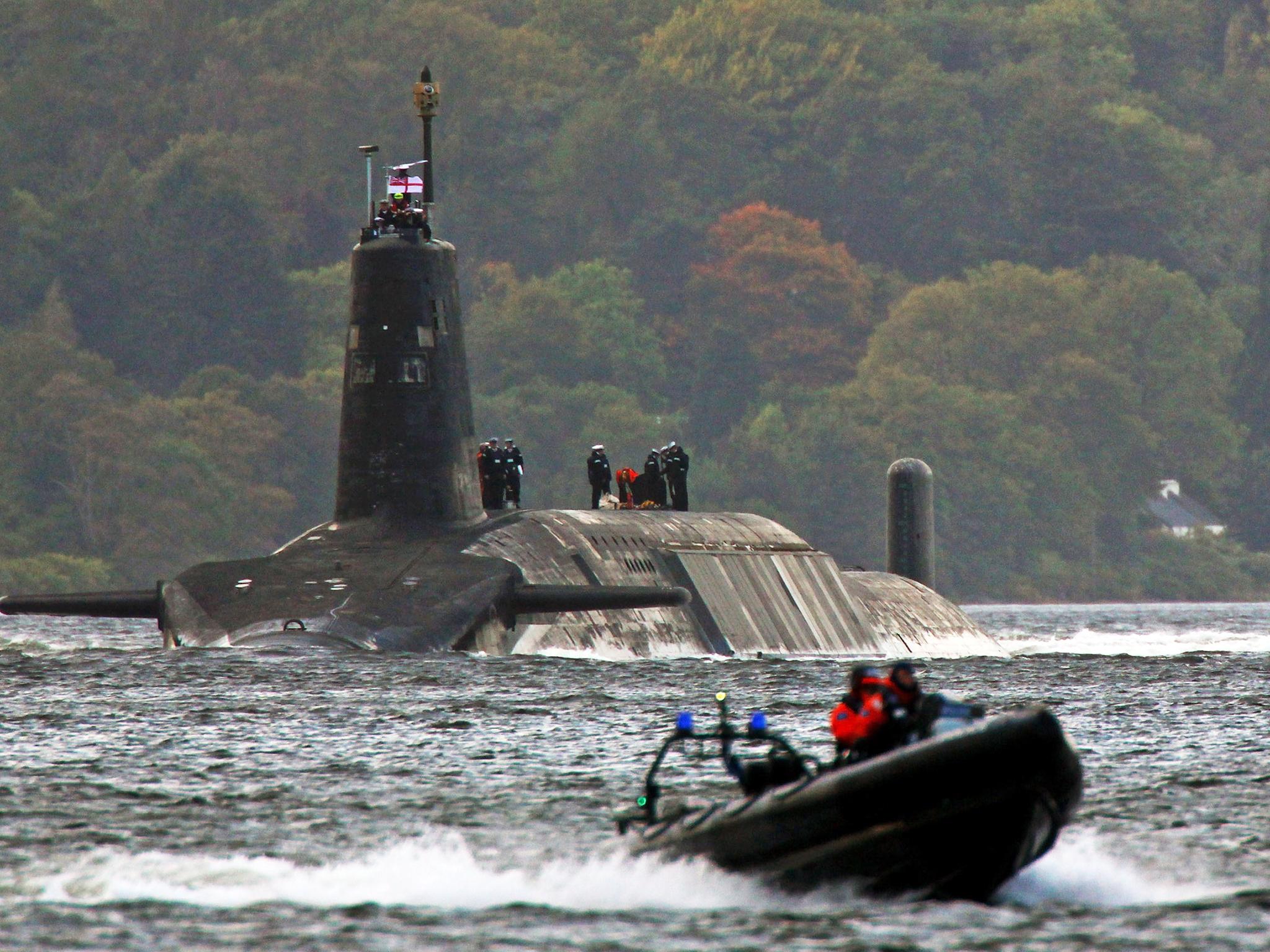Theresa May has ignored her own government's report that Trident is no longer needed
The National Security Strategy and Strategic Defence and Security Review said that there is 'no direct threat to the UK or its vital interests from states developing weapons of mass destruction'


By any standard, Theresa May has had a pretty tumultuous few weeks. Her first days in office have been dominated by Brexit and European relations, and central to today’s vote on Trident’s renewal is the question of what kind of role the UK should play in the world.
May's view on the nuclear question is very clear. She has argued that “the nuclear threat has increased” and “it is impossible to say for certain that no extreme threats will emerge in the next 30 or 40 years to threaten our security and way of life.”
The first part of her argument ignores the government’s own National Security Strategy and Strategic Defence and Security Review. The review listed international terrorism, cyber-attacks, public health scares and natural hazards among the many greater threats than nuclear war. The report went on to say there is “no direct threat to the UK or its vital interests from states developing weapons of mass destruction.”

Beyond that, her argument that we don’t know what might happen in 40 years’ time is one that absolutely every single state in the world could use to justify the development of nuclear, chemical or biological weapons. It’s a self-perpetuating argument that makes the world more dangerous by giving a blank cheque to those who seek nuclear proliferation, and can be used to delay disarmament indefinitely.
One of the real reasons consecutive governments have chosen to renew Trident is status. Tony Blair acknowledged this in his autobiography, when he wrote of his hesitation before deciding that “in the final analysis I thought giving it up too big a downgrading of our status as a nation.”
It’s a strange interpretation of status. There are a number of powerful and influential nations, like Germany and Japan, that have never had nuclear weapons. Are we really to believe that the maintenance of arms that could wipe out millions of lives is a pre-requisite for global influence?
Many of the press reports on Trident understandably focus on its outrageous cost (up to £200 billion over the course of 30 years). Especially in tough economic times, this money could be reinvested in far better ways, rather than being poured into a new generation of nuclear weapons.
But even if we put the financial implications to one side, the potential impact of the weapons is far too deadly to contemplate. One Trident submarine has the power to kill 5.4 million people, and it would do so indiscriminately. The impact could be on an even greater scale than Hiroshima.
Politicians of all stripes say they want to see a nuclear free world. But if countries like the UK don’t take the first step by disarming then why will anybody else? If we keep following the logic of Trident then the current situation will only continue, and we’ll find ourselves having the same debate in 20 or 30 years’ time.
Many political observers believe that the reason this vote was called for today was to reunite the Tory Party and exploit long-standing divisions on the Labour benches.
Whatever people’s views on Trident, surely one thing we can all agree on is that the issue is far too big, and the consequences potentially far too grave, for it to be used as just another pawn in a contemptible parliamentary parlour-game.
For far too long, UK foreign policy has been guided by a commitment to militarism and interventionism. But, with the Chilcot report having forensically dismantled the case for the Iraq war, it is time to question the Whitehall consensus and ask what UK foreign policy should seek to achieve.
Ultimately there needs to be a far broader discussion that goes beyond the petty point-scoring and narrow confines of party politics. Only in this way can we work towards a new approach to national security; one that isn’t constantly focused on projecting strength and taking part in catastrophic wars that leave a trail of destruction and do nothing to keep us safe.
Andrew Smith is a spokesperson for the Campaign Against Arms Trade (CAAT)
Join our commenting forum
Join thought-provoking conversations, follow other Independent readers and see their replies
Comments